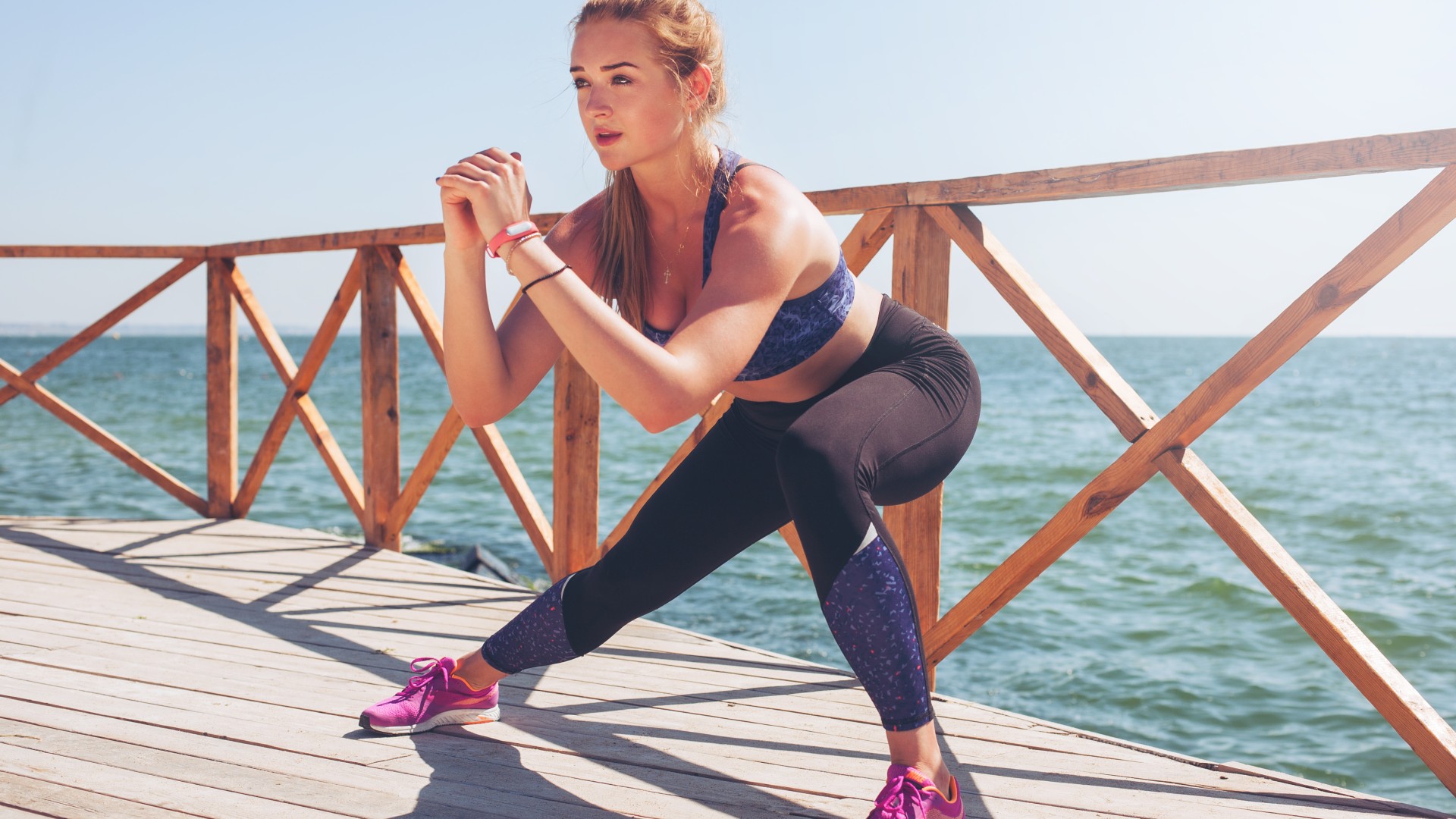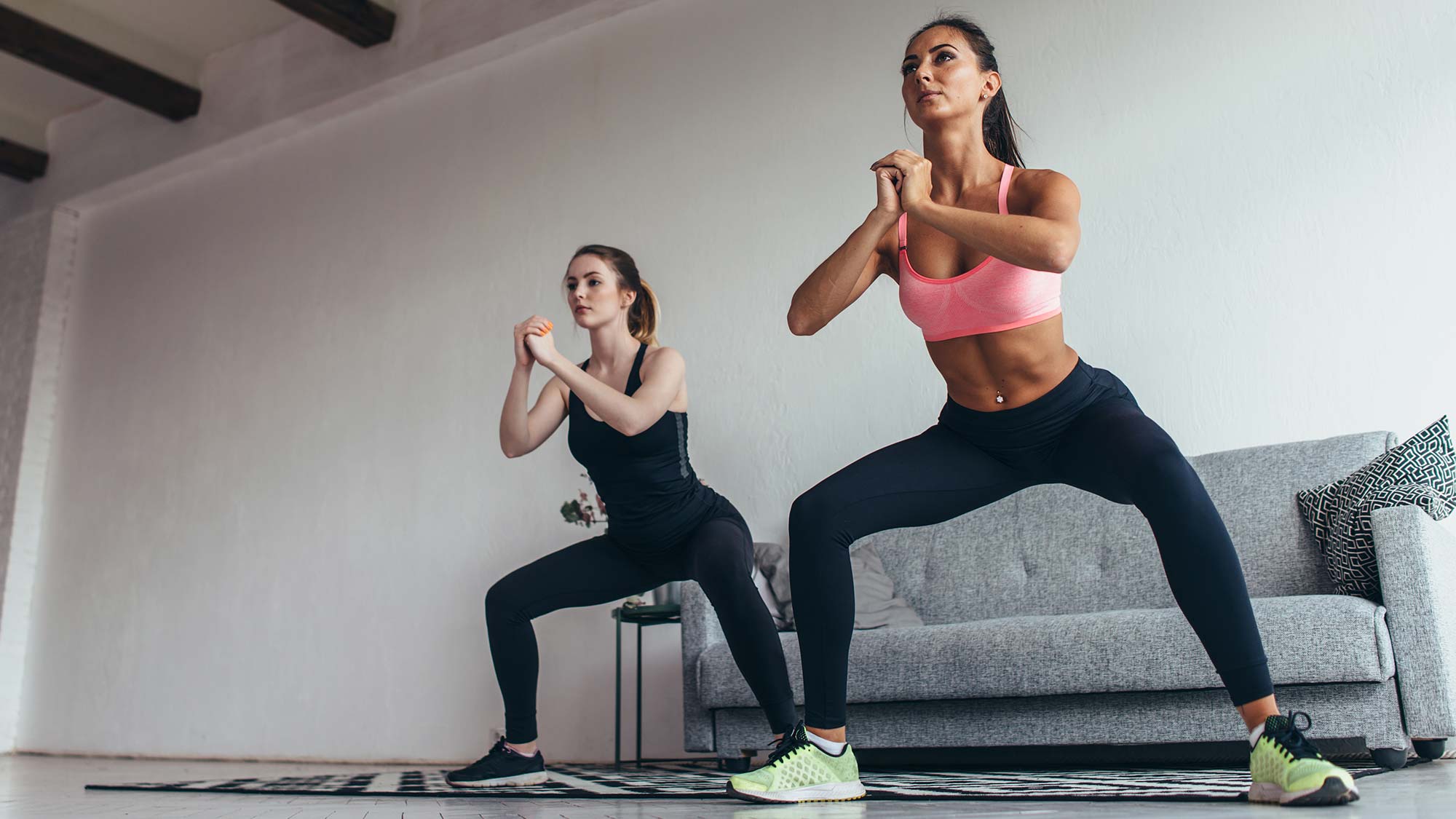
I love working with kettlebells, barbells, and dumbbells, but this 20-minute leg workout builds strength and muscle in your quads, glutes, and hamstrings without weights. If you want to train using your body weight at home, this home leg workout is 20 minutes well spent.
Chris Heria, creator of the calisthenics app Thenx, created this 20-minute home leg workout to help you build muscle with only your body weight and no need for the gym or weights. If you want to add resistance to your muscles, we recommend the best adjustable dumbbells for weightlifting at home to spice things up.
That said, calisthenics training is an excellent way to build strength, muscle, and coordination using functional bodyweight strength training like squats and lunges. And with over 3.7 million views already, this big burn leg workout is guaranteed to strengthen your lower body and work your quads, hamstrings, and glute muscles hard.

Although calisthenics workouts can be kinder on joints and more accessible for beginners, remember to always work at your current strength level and scale any sets, reps, or breaks to suit your ability. Bodyweight training can still be intense, but always try to move through a full range of motion, which means working your body the entire way through an exercise. For example, achieve as much depth in a squat as possible without losing form.
Heria is renowned for his calisthenics programs. The term “calisthenics” covers anything from bodyweight strength training exercises like squats and lunges to mastering advanced gymnastics like the muscle up or planche. This 20-minute leg workout is accessible for everyone — no handstands or floating limbs in sight.
Watch Chris Heria’s 20-minute home leg workout video
It’s worth a reminder that a standalone 20-minute leg workout won’t deliver muscle definition to rival a bodybuilder. Body composition is determined by the combination of lean muscle mass and lower body fat percentage — you can learn how to calculate your body fat percentage and why it matters here.
But try adopting the progressive overload technique — gradually increasing weight, reps, or sets to achieve muscle growth — which will help you build and strengthen your muscles.
As we mentioned, the workout targets all the leg muscles, including your quads, glutes, hamstrings, and calves, using compound exercises. By eliminating rest time, Heria says you can achieve in 20 minutes what those in the gym take an hour to do. You’ll work for 45 seconds and rest for just 15. By focusing on form rather than reps, you can achieve more from each exercise — quality over quantity.
Heria provides tips and cues throughout, so follow along carefully.
20 exercises mix traditional strength, explosive power, and mobility exercises. During the first move — frog squats, which emphasize your hamstrings — try to start slow if you have limited flexibility in your lower body or a tight lower back. Try this lower-back stretch every day if that sounds like you.
During each 45-second working set, aim for at least 8-10 reps per exercise, especially when working on single-sided moves like Bulgarian split squats (find out what happened when our writer did 50 Bulgarian split squats every day for a week and how to do them here). Doing so will help deliver consistency. Split squats involve elevating one leg behind you onto a surface, testing your core strength and balance.
To emphasize the glutes and hamstrings, slightly lean forward and keep your back straight.
A glute bridge develops your glute muscles (mostly the gluteus maximus) and stretches the hip flexors, but you can experiment with moving your heels further away to create more tension in your hamstrings.
Five minutes into the leg workout, Heria switches things up with an isometric exercise called the wall sit (learn how to do a wall sit properly here), which means holding the muscles under contraction without them flexing or extending. The exercise fires up the quads, so focus on squeezing your core muscles and pressing through your heels.
I like how diverse the routine is, using a mix of holds and plyometrics (explosive movements like lunge jumps) to target the muscles evenly and torch your legs. In 20 minutes, you’ll achieve a burn similar to a 45-minute HIIT class. Plyometric training helps develop power and speed and quickly fatigues the legs, and research has shown that it could improve jump and strength performance in the lower body.
Verdict
The leg workout is heavy on the lunges, so if you have hip, knee, or ankle injuries, avoid jumping and switch to squats if needed. The intensity of this short workout derives from very little rest, so I recommend pausing the video if you’re a beginner and need more recovery time.
Expect to work in all planes of motion (directions), like side-to-side, forward, and backward, helping to target various muscle groups that stimulate in different ways. Take the lesser-known gluteus medius (outer glutes) — they switch on from sideways movement and hip abduction.
Building strength and stimulating muscle growth come from consistency and variety. Variety features in this leg workout, but consistency takes time and commitment. Mastering this workout could help you build a stronger core and lower body and improve overall strength and mobility. It’s worth a bookmark.







